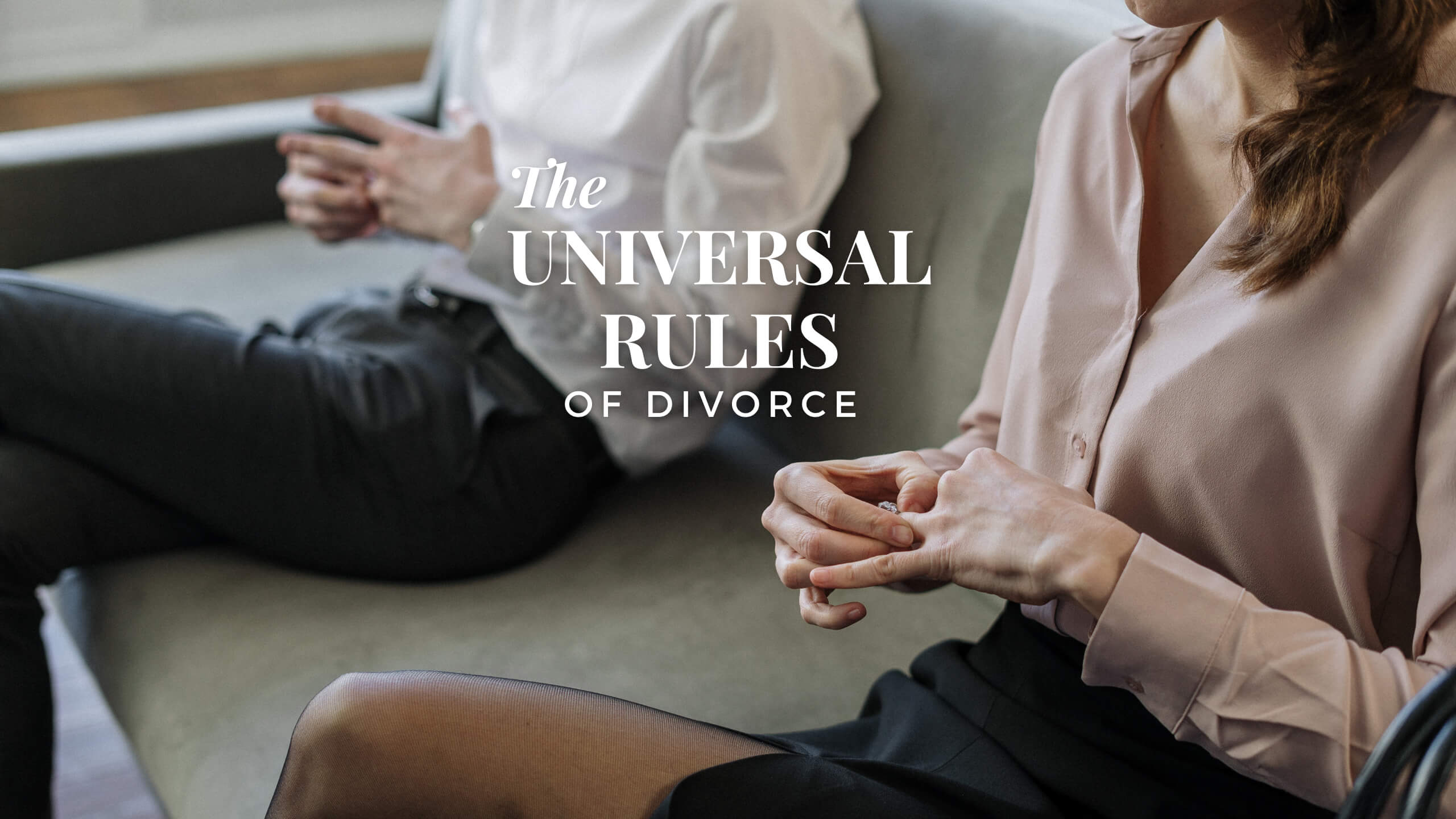The Universal Rules Of Divorce

3 Rules for Less Conflict and Less Pain in Divorce.
The Universal Rules of Divorce:
- You Need to Take Responsibility:
Before we get into this, we need to be clear on something. When we talk about responsibility in the context of the divorce process, we are talking about taking ownership of your experience and your life from this point forward. We are not talking about blame and fault-finding. We’re talking about accepting that you are here in this moment and that you are going to tackle it head on. It doesn’t matter how you got here – what matters is what comes next and your role in that process. When you take responsibility, divorce is no longer something that just happens to you, it’s something you become a part of.
When you’re a part of something, you can influence the outcome. You are more on top of things. When something isn’t moving, you will be more aware or why or what questions to ask, you’ll be more prepared, and you’ll be more likely to achieve your goals.
I know that you probably don’t want to be here. I know that this probably means that a lot of the dreams and expectations that you had are being upended. I know that it is unfair that it only takes one person to get a divorce, but it takes two to get married. However, if you can’t accept responsibility for your life at this moment, you’ll likely end up facing a longer divorce that costs more and undermines your future goals. You won’t be able to stop it, and that will define your experience with frustration and a whole host of other negative emotions.
2. Accept That Some Things are Just Beyond Your Control
It is not your job to be responsible for or to control the behavior of your spouse, your attorney, the court, or anyone or anything else. Your job is to focus on you and how you react and respond to things that are coming down the road ahead. Trying to force things outside of your control to your will, especially your spouse or partner, is only going to be a source of frustration for you that causes more conflict and more pain.
You’re not going to be perfect at this, and we don’t expect you to be. You’re human, and you feel. There’s no way to permanently separate emotions from the process of a divorce or custody fight. That’s why it’s important for you to find ways to refocus yourself and build a team you can rely on for support.
3. What Goes Around, Comes Around
Call it what you will: equal and opposite reactions, karma, cause and effect; what you do in your divorce will impact you down the road. If you’re going to act like a jerk now, not only are you going to create more conflict, but it can be used against you later on in your case. It doesn’t matter if your spouse started it. It doesn’t matter if your spouse is a bigger jerk. If you go back and forth with that behavior, it only makes your life more difficult.
Your spouse’s behavior will catch up with them, but it’s not your job to try and serve them justice. Your job is set your own goals with your attorney and work diligently towards them in a positive and constructive manner. Let your spouse be the jerk. Whatever satisfaction they might be trying to get from instigating fights with you mean nothing in the face of you building something good for your future.
If you understand these rules, how they work, and how to abide by them, your experience in divorce will be a lot less painful. You’ll be better positioned to get to where you want to be and you’ll feel less like you’re being dragged along for the ride.
This article was written by a non-attorney member of our Firm. It is not intended to provide, nor does it constitute, legal advice. If you have questions regarding your case, you can contact O’Connor Family Law at 774-703-3755 or at info@familylawma.comand ask for a free case


